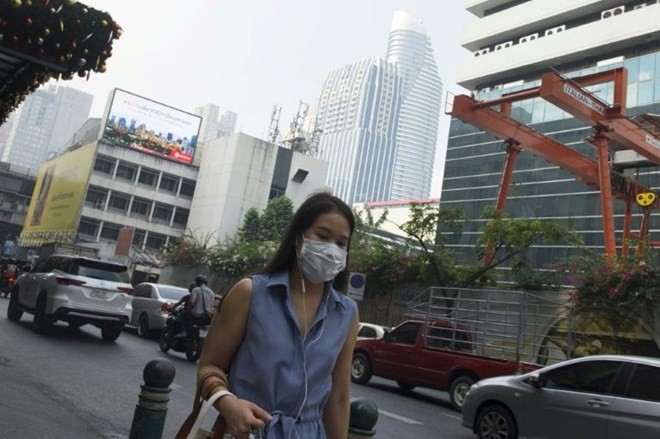
The weather modification technique involves dispersing chemicals into the air to aid cloud condensation, which should in theory result in rain.
Pralong Dumrongthai, director-general of Thailand's Pollution Control Department, said that the rainmaking is set to be done on January 15, but it depends on wind and humidity levels.
The Department of Royal Rainmaking and Agricultural Aviation will be in charge of this mission, he added.
Air Visual, an independent online air quality index (AQI) monitor, pegged Bangkok at "unhealthy" levels measuring 156 AQI on January 14.
But the Pollution Control Department played down the dangers of the persistent haze, which the government judges using a different set of measurements to see the concentration of harmful microscopic particles known as PM2.5.
Pralong Dumrongthai said Bangkok had recent peak PM2.5 levels of 102 micrograms per cubic metre and on January 14 was sitting under 90.
Environment group Greenpeace said Bangkok is currently the 10th most polluted in the world, rivalling some cities in China. Reasons for the persistent smog include combustion exhaust from Bangkok's traffic-strewn roads, the burning of fields from farmers outside the city, and pollutants from factories.
In recent weeks, municipal workers have sprayed water along the roads and into the air in Bangkok to help clear the smog, while authorities have urged people to stay indoors.
























